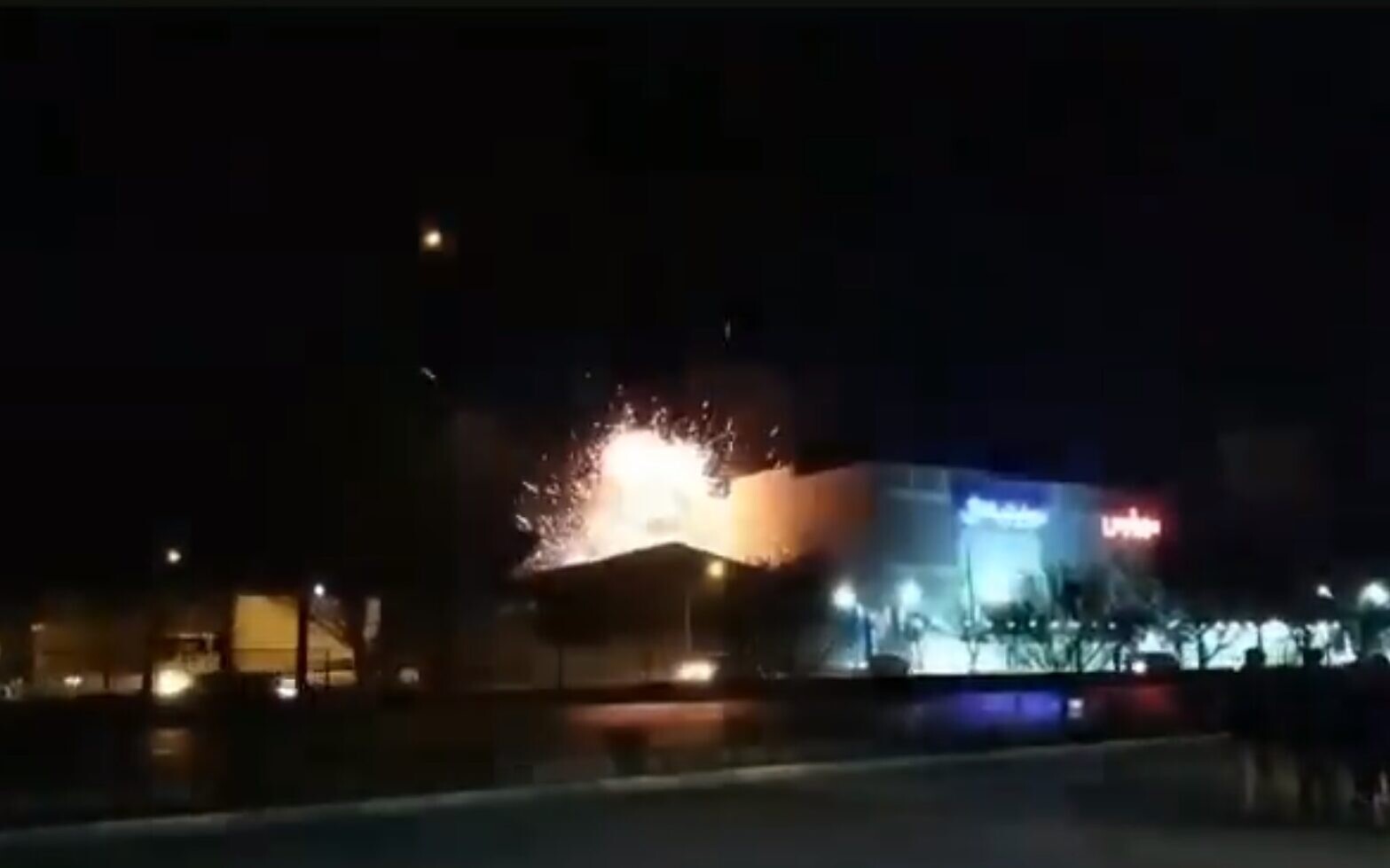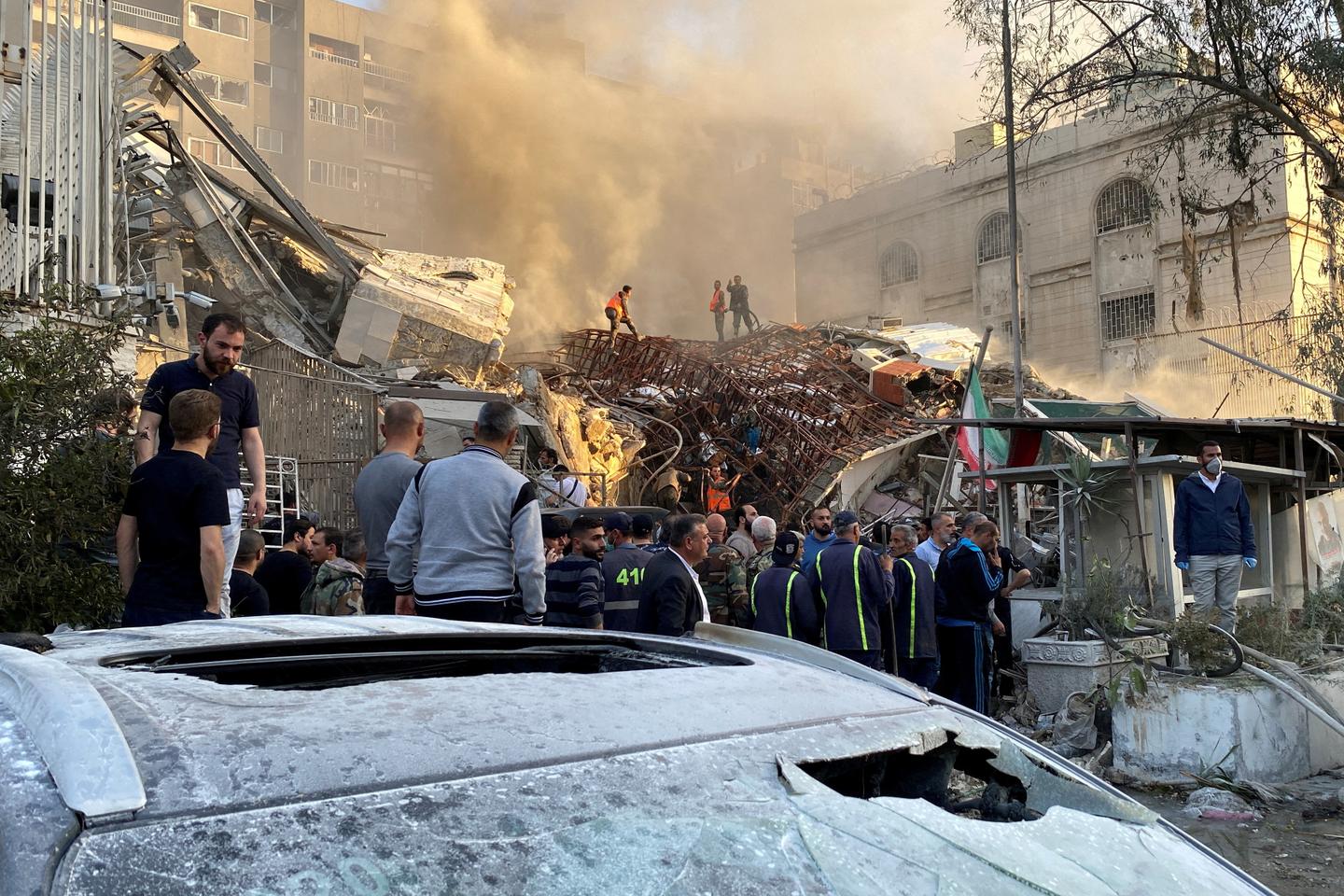Historical Context and Background

The relationship between Iran and Israel has been marked by deep mistrust and hostility for decades, rooted in ideological, religious, and geopolitical factors. This complex relationship has been characterized by a history of proxy conflicts, military tensions, and diplomatic standoffs, shaped by the broader dynamics of the Middle East.
Timeline of Significant Attacks and Incidents, Iran attack israel israeli
The history of conflict between Iran and Israel is marked by a series of significant attacks and incidents, often involving proxy groups or indirect actions. Here is a timeline of key events:
- 1979: Following the Iranian Revolution, relations between Iran and Israel deteriorate drastically. Iran becomes a staunch supporter of Palestinian groups and vows to destroy Israel.
- 1980s: Iran supports Hezbollah, a Lebanese Shi’a militia, which conducts attacks against Israel.
- 1990s: Israel targets Iranian nuclear facilities, starting a long-standing tension over Iran’s nuclear program.
- 2006: Israel and Hezbollah engage in a major conflict, which further escalates tensions with Iran, a key supporter of Hezbollah.
- 2010s: Israel launches cyberattacks against Iran’s nuclear program and targets Iranian assets in Syria.
- 2018: The US withdraws from the Iran nuclear deal and reimposes sanctions, increasing tensions and potentially escalating the conflict.
Role of External Actors and Regional Dynamics
The relationship between Iran and Israel is not isolated but embedded within a broader regional context, influenced by the actions of external actors and regional dynamics.
- The United States: The US plays a significant role in shaping the dynamics of the conflict, often acting as a mediator or a supporter of Israel.
- The Arab World: The relationship between Iran and Israel is also influenced by the shifting alliances and rivalries within the Arab world.
- Russia: Russia’s involvement in Syria and its relationship with both Iran and Israel create complex dynamics in the region.
- The European Union: The EU has attempted to play a role in resolving the conflict, but its efforts have been limited by the complex political landscape.
Motivations and Objectives
Iran’s attacks on Israeli targets stem from a complex web of historical, ideological, and strategic factors. Understanding these motivations is crucial for analyzing the objectives Iran seeks to achieve through its actions. This analysis delves into the driving forces behind Iran’s actions and the strategic goals it aims to accomplish.
Strategic Objectives
Iran’s attacks on Israeli targets are driven by a combination of strategic objectives, including:
- Deterrence and Retaliation: Iran seeks to deter Israel from taking military action against its nuclear program and other perceived threats. Attacks serve as a form of retaliation for Israeli strikes against Iranian assets or its allies. For example, in 2012, Iran retaliated for an Israeli airstrike on a Syrian facility suspected of developing chemical weapons by attacking Israeli targets in the Golan Heights. This pattern of retaliation and deterrence has become a recurring theme in the relationship between the two countries.
- Regional Hegemony: Iran aims to establish itself as the dominant power in the Middle East, challenging Israel’s regional influence. Attacks on Israeli targets are seen as a way to weaken Israel’s position and bolster Iran’s own regional standing. This objective is closely tied to Iran’s support for various militant groups in the region, which it uses to project power and influence.
- Support for Palestinian Resistance: Iran views itself as a staunch supporter of the Palestinian cause and considers Israel an illegitimate state. Attacks on Israeli targets are seen as a way to show solidarity with the Palestinians and to undermine Israel’s security. This objective has been particularly prominent in recent years, as tensions between Israel and Palestine have escalated.
- Disrupting Israel’s Economy and Society: Iran seeks to inflict economic and social damage on Israel through its attacks. By targeting critical infrastructure and economic sectors, Iran hopes to disrupt daily life and create instability within Israeli society. This objective aims to weaken Israel’s resilience and erode its public support for the government.
Impact and Consequences: Iran Attack Israel Israeli

Iranian attacks on Israel have far-reaching consequences, impacting Israeli society, infrastructure, and security, while also creating significant geopolitical ripples. The conflict has the potential to escalate, raising concerns about a full-blown war between the two nations.
Impact on Israeli Society
The impact of Iranian attacks on Israeli society is multifaceted. The constant threat of attack creates a sense of fear and insecurity among the population. Attacks on civilian targets, such as the 2012 attack on a bus in Tel Aviv, have caused widespread trauma and fear. The psychological impact of these attacks can be long-lasting, leading to anxiety, depression, and post-traumatic stress disorder (PTSD). The attacks also strain Israel’s resources, diverting funds and manpower from other critical areas.
Impact on Israeli Infrastructure
Iranian attacks on Israeli infrastructure have caused significant damage and disruption. These attacks have targeted power grids, communication networks, and critical infrastructure, causing widespread outages and disruptions to daily life. The 2010 Stuxnet cyberattack, which targeted Iran’s nuclear program, is a prime example of this type of attack. While the Stuxnet attack was attributed to the United States and Israel, it demonstrates the potential for Iranian attacks to cause significant damage to critical infrastructure.
Impact on Israeli Security
Iranian attacks on Israel pose a significant threat to Israeli security. These attacks have forced Israel to increase its military preparedness and invest heavily in defense systems. The constant threat of attack has also led to a rise in tensions between Israel and Iran, increasing the risk of a full-blown conflict.
Geopolitical Consequences
The conflict between Iran and Israel has significant geopolitical consequences. It contributes to regional instability, fueling tensions between Israel and its Arab neighbors. The conflict also complicates international relations, as countries attempt to balance their relationships with both Israel and Iran. The conflict has the potential to draw other countries into the conflict, potentially leading to a wider regional war.
Potential for Escalation
The potential for escalation in the conflict between Iran and Israel is a significant concern. The use of advanced weapons systems, such as ballistic missiles and drones, could lead to a rapid escalation of the conflict. The possibility of Iran developing nuclear weapons further increases the risk of a major conflict. A full-blown war between Iran and Israel would have devastating consequences for the region and beyond.

